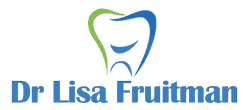Here Are My 23 Top Tips for a Healthier Smile
Overall Care for Your Mouth
• BRUSH – Using a fluoride toothpaste, brush your teeth before bed, and at least once during the day.
• FLOSS – Using floss (or an inter-dental bush) thoroughly clean between your teeth at least once per day.
• BREATH CHECK – To check if you have bad breath lick your wrist, let it dry and give it a sniff, if it smells your breath probably does too.
• MOUTHWASH – If using mouthwash is part of your regimen, don't use it immediately after brushing, as you'd rinse away the fluoride in your toothpaste.
• SMOKING – (wink wink) Quiting will help reduce factors such as stained teeth, gum disease, tooth loss, and more severely, the possibility of mouth cancer.
• FLUORIDE – Use a toothpaste with fluoride, this natural element will strengthen your tooth enamel, guarding against tooth decay.
• TOOTH BRUSH – To clean teeth properly, your toothbrush needs to be in top shape. Change your toothbrush regularly, typically every two or three months.
How Your Dentist Can Help
• Visit your dentist regularly, as often as your dentist recommends.
• Housebound? Some dentists may offer home visits, check local listings if this is the case.
• Nervous? Let's talk. This is normal, so make sure your dentist is aware of any anxieties so they can adjust your treatment as necessary.
• Bring Help. One solution in dealing with dental anxiety is bring a friend for support. Alternatively, listen to music or watch a movie to help you relax.
• Prevention. Regular visits with a dental hygienist will help prevent dental issues. Your hygienist will tailor suggestions according to your situation.
Dental Care and Your Diet
• GUM is actually healthy! Chew sugar-free gum after a meal, especially after sugary foods & drinks. Gum (& the saliva it creates) cleans & protects.
• Fresh fruits & vegetables are rich in vitamins, minerals, and fresh fruit and vegetables can help to prevent gum disease.
• Cheese can help. Yes, eating a block of cheese after a meal can reduce the effect of acids from some of the foods that can damage our teeth.
• Avoid sugary snacks. Try to only consume sugary foods and drinks at mealtimes. This reduces the damaging effect sugar has on teeth.
• Try sugar-free snacks if you have a sweet tooth. Not only healthier, but some can actively contribute to your dental health.
Bonus Round: Your Baby and Dental Health
• Weaning your baby off the bottle early can help them avoid developing dental problems.
• Your baby should not keep a bottle overnight. Ongoing bottle use over several hours can cause tooth decay.
• Parents should try and supervise your children's tooth brushing until they are about 7 years old.
• Bring your child for a dental visit when baby's first teeth appear. This also helps your child become accustomed to visiting a dental practice.
• Use a song or a timer during brushing – this helps your child to brush for the correct amount of time. Brushing to a song can be fun!
• Keep your children engaged with the importance of brushing with a reward chart. A chart can track your child's brushing habits.


